Truth, Healing and Reconciliation Initiative
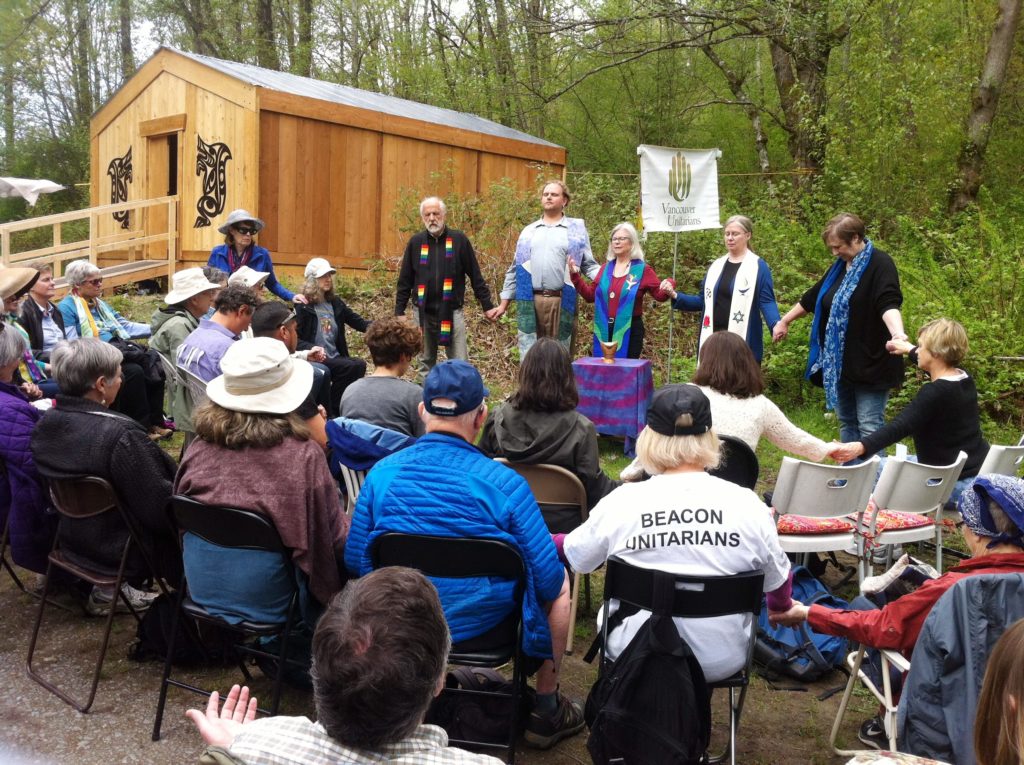 Canadian Unitarian Universalists (UUs) are committed to the journey toward truth, justice, healing, and reconciliation between Indigenous and non-Indigenous peoples, and to putting into practice the principles set forth in the United Nations Declaration on the Rights of Indigenous Peoples.
Canadian Unitarian Universalists (UUs) are committed to the journey toward truth, justice, healing, and reconciliation between Indigenous and non-Indigenous peoples, and to putting into practice the principles set forth in the United Nations Declaration on the Rights of Indigenous Peoples.
In 2014, the Canadian Unitarian Council (CUC) and Unitarian Universalist Ministers of Canada (UUMOC) issued a Truth and Reconciliation Statement. In it, we committed to assemble and promote educational materials for our congregations on the history and impact of the Indian residential school system, and to uphold the recommendations of the United Nations Declaration on the Rights of Indigenous Peoples.
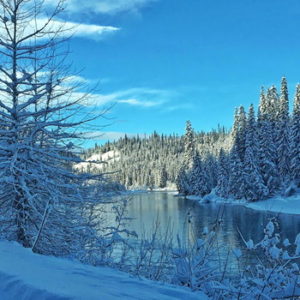 CUC Pledges Solidarity with Wet’suwet’en
CUC Pledges Solidarity with Wet’suwet’en
The Canadian Unitarian Council originally pledged solidarity in January 2019 with the Wet’suwet’en hereditary chiefs around the development of a Coastal GasLink pipeline on traditional territories in northwestern British Columbia. In February 2020, the CUC reaffirmed that pledge during the ongoing struggle between resource development, and Indigenous rights and title.
Read the original CUC statement: Solidarity with Wet’suwet’en, and the reaffirmation CUC Wet’suwet’en National Voice Statement.2020-02
Landback
What is the Doctrine of Discovery?
The Doctrine of Discovery is a legal principle that European countries extinguished Indigenous sovereignty and acquired the underlying title to Indigenous Peoples’ lands upon ‘discovering’ them.
The Doctrine of Discovery is inspired by racist 15th century papal bulls dividing up “uncivilized” Indigenous lands for European powers. It became a legal principle through United States Supreme Court decisions of the 1820s and 1830s (the “Marshall Decisions”). It made its way into Canadian law in the 1880s through the St. Catherine’s Milling decision.
The continued centrality of the Doctrine of Discovery to modern Canadian Aboriginal law is the source of many Indigenous people’s rejection of the Canadian legal system and government policies on ‘reconciliation’.
Excerpts from: What is the Doctrine of Discovery, Bruce McIvor
More about the Doctrine of Discovery
- Indigenous Title and the Doctrine of Discovery -Indigenous Corporate Training Inc, March 30,2023
- Dismantling the Doctrine of Discovery- Assembly of First Nations, 2018
- Vatican Officially Repudiates the Doctrine of Discovery, APTN, March 30, 2023
Land Back
What is Land Back
Learn how returning land to First Nations governance would mean a safer environment for everyone.

Land Back: A Yellowhead Institute Red Paper
Content includes:
The spectrum of consent
The role of denial
Examples of Reclamation
Implementing models of Indigenous Free Prior Informed Consent
Beyond the United Nations Global Assessment Report
Who controls the lands in this country we call Canada?
Who controls the lands in this country we call Canada?
- 11% Private
- 41% Federal Crown Land
- 48% Provincial Crown Land
- .36 % Reserve Lands
Land Back: Indigenous Perspectives
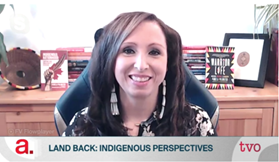
Land Back: The Crown Perspective
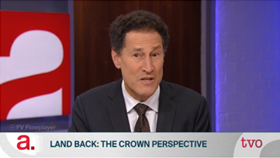
What non-Indigenous can do

Examples of Land Back
Articles about LandBack
Reflection Guides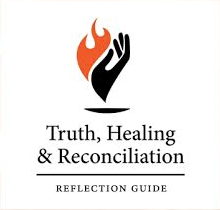
The Truth, Healing, and Reconciliation Reflection Guides (THRR Guides) help to educate Unitarian Universalists in Canada about our role in the colonization of Indigenous peoples and, in particular, the history of the Indian residential schools. The THRR Guides are designed to encourage further critical dialogue and increased understanding of the privilege being created for settler people through the colonization process. The multi-age Guides are written with non-Indigenous people in mind and are presented within a Unitarian framework. Sessions are peer-led by a member of each congregation/group with the support of a peer coach provided by the CUC. Those interested can contact the CUC who will lead them through a three to six month preparation process that includes facilitator training.
Learn More – THRR Guides Introductory Booklet
Contact reconciliation@cuc.ca with any questions.
Other resources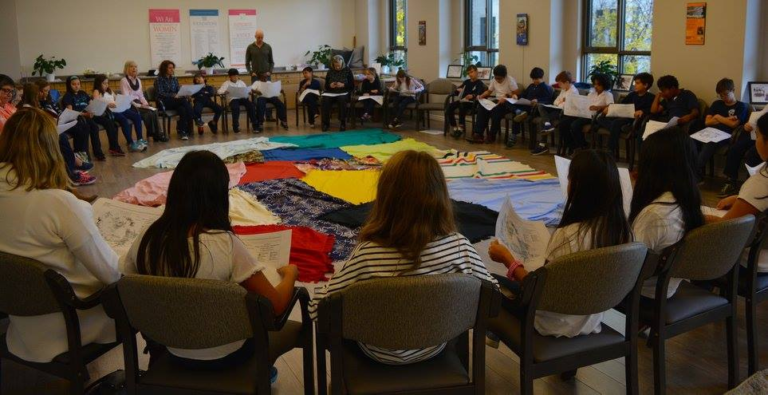
- The CUC’s 2016 Sharing Our Faith-package suggests many songs, stories, and readings for worship services and other activities.
- The THR Elementary Age Resource List suggests picture books, novels, videos, and other teaching tools for lower and upper elementary school children.
- The National Centre for Truth and Reconciliation is the permanent home for all statements, documents, and other materials gathered by the Truth and Reconciliation Commission of Canada. You can access historical records and other materials to help foster reconciliation and healing.
- KAIROS Blanket Exercise
- Winds of Change campaign to implement the TRC Calls to Action, and much more.
- Reconciliation Canada is an Indigenous-led organization that catalyzes meaningful relationships through values-based dialogue, leadership, and action. They offer Community Action Toolkits for youth, young adults, and adults.
The THRR Guides were developed by the following people with on-going feedback from various Indigenous elders and educators:
- Rev. Meg Roberts, co-chair
- Rev. Samaya Oakley, co-chair
- Amber Dawn Bellemare
- Marlene Blake Seale
- Leslie Kemp
- Casey Stainsby
This project was funded in part by the Fund for Unitarian Universalist Social Responsibility.
Pipelines, Democracy and Aboriginal Title: A Conversation with Dr. Niigann Sinclair
This event was held on May 24, 2020. Register below to view video of the discussion with Dr. Niigaan Sinclair about how non-Indigenous people can be in solidarity with Indigenous Nations when they are divided. This session explored issues around Aboriginal land title, hereditary vs. colonial leadership, consent, consultation, and the various layers of justice to be considered when addressing issues such as climate action. This session is intended for settlers who want to engage in relationship building and reconciliation with Indigenous peoples and communities.
Niigaanwewidom James Sinclair is Anishinaabe and originally from St. Peter’s (Little Peguis) Indian Settlement near Selkirk, Manitoba. He is a respected author, editor and regular commentator on Indigenous issues for CTV, CBC, and APTN Niigaan also teaches courses in Indigenous literature, cultures, histories, and politics at the University of Manitoba. He is a proud Treaty One member. The son of Senator Murray Sinclair who was the Chief Commissioner of the Truth and Reconciliation Commission (TRC), Niigaan has been steeped in conversations related to reconciliation and comes with a wealth of lived experience with the complexities of implementing reconciliation on a political and grassroots level.
The video of the event is now available for viewing. Please fill out the order form below.
Cost:$15 per person
